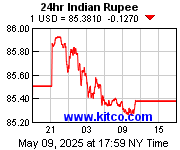The Fair Debt Collection Practices Act better known as the FDCPA legally offers protection to the consumers from the illegal and unethical debt collection practices. This federal law was enacted to protect us from collector abuse. Each and every consumer must better understand their legal rights and the purpose of this article is to make them aware while dealing with illegal and ethical debt collection situations.
The most common question asked by a consumer when called by a debt collector for one of their past debts is “Can debt collectors demand payment or can they even take legal actions during the thirty day period for disputing a debt”. The answer to this question is pretty simple and obvious. If you have disputed the debt with the collection agency in writing, they can’t sue you in the court. But if you don’t have any documentation to prove that the debt is disputed and they are required to verify the item with the original creditor, they may take legal actions against you once the thirty day period is over. The FDCPA treats the thirty-days as a dispute period within which the consumer (debtor) may insist that the collector verify the debt and it is certainly not a grace period that prohibits any attempts to collect the debt.
Finally, when you have disputed the debt in writing, all collection attempts must stop until the time the collector has verified the debt in accordance with Section 809 of the FDCPA.
Section 809(a) legally requires a collector to validate the debt containing the following information.
(1) The amount of the debt and
(2) The name of the creditor, along with a statement that he will
(3) assume the debt’s validity unless the consumer disputes it within 30 days,
(4) Send a verification or copy of the judgment if the consumer timely disputes the debt, and
(5) Identify the original creditor upon written request.
If you are getting repeated and harassing phone calls from the debt collectors in the odd hours, and you have already requested for the debt validation in writing, move on to the next legal step by sending a cease and desist letter. This letter will legally stop them from contacting you on the phone. However, they can contact you through mail if you have given them the preference in your letter. If they violate the laws, speak to an attorney who deals in lawsuits of FDCPA violations. You can be compensated up to $1000 for every violation done by the collection agency. During this time, you can make an attempt to contact the original creditor and work out payment arrangements directly. This will prevent any negative remark on your credit report resulting from a collection agency.
See the full article here on Fair Debt Collection Practices Act.
This entry was posted on Wednesday, November 28th, 2007 at 6:32 pm and is filed under Debt. You can follow any responses to this entry through the RSS 2.0 feed. You can leave a response, or trackback from your own site.




















